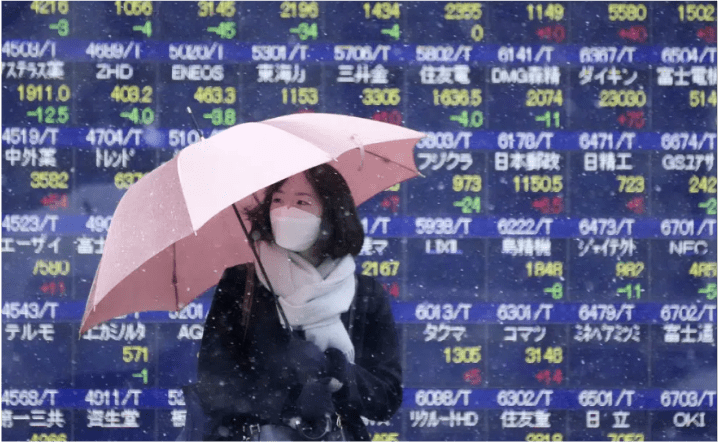Asian shares saw a decline on Friday as the global market evaluated earnings reports and the state of inflation in various countries. China reported an increase in consumer inflation last month, while producer prices fell in January. Next week will bring a release of inflation updates from the U.S. and Britain, as well as retail sales and industrial production data..
Asian shares were mostly lower on Friday as investors took a step back to consider the latest earnings reports and indicators regarding inflation in the US and other regions. In Japan, the Nikkei 225 increased by 0.3% to reach 27,650.80. Meanwhile, Australia’s S&P/ASX 200 slipped by 0.7% to 7,438.50, and South Korea’s Kospi dropped by 1.0% to 2,456.39. Hong Kong’s Hang Seng lost 1.8% to close at 21,238.81, while the Shanghai Composite fell by 0.6% to 3,250.85. Other countries, such as Mumbai, Taiwan, and Singapore, also experienced declines in their shares.
China recently reported that its consumer inflation rate increased last month as demand increased with the lifting of pandemic restrictions and spending related to the Lunar New Year holiday. However, producer prices decreased by 0.8% in January following a 0.7% decline the previous month. Consumer price inflation rose to 2.1% from a 1.8% climb in December.
Next week, important updates on inflation and economic data will be released in the US and UK, including US retail sales and industrial production figures. On Tuesday, Japan will also release its economic growth figures for the fourth quarter of 2022.
Wall Street shares also dropped on Thursday as a result of mixed earnings reports from various companies and growing expectations for interest rates. The S&P 500 fell by 0.9% to 4,081.50, and the Dow Jones Industrial Average lost 0.7% to 33,699.88. The Nasdaq composite decreased by 1% to 11,789.58.
The stock market has been experiencing fluctuations as investors remain uncertain about the direction of interest rates and inflation. The still-strong job market has led some to believe that the Federal Reserve will continue to raise interest rates a couple more times before holding them at a high level for the rest of the year. However, high interest rates can also lead to a decrease in inflation and increase the risk of a recession.
Thomas Martin, a senior portfolio manager at Globalt Investments, stated, “There’s continuing evidence that the economy is stronger than people thought it was going to be. The question is what is the economy’s ability to continue that resilience in the face of interest rates that are a lot higher than they were a year ago.”
The impact of high inflation and fears of a slowing economy have already begun to affect corporate earnings, with some big US companies reporting mediocre results for the end of 2022. The Walt Disney Company recently surprised the market with stronger than expected profits for the latest quarter, but also announced plans to cut 7,000 jobs as part of cost-saving measures. Despite job cuts across several industries, the job market has remained resilient.
Alphabet, Google’s parent company, also experienced a rough week with a 4.4% drop in shares amid competition worries from Microsoft’s new AI-powered Bing search engine. In energy trading, US crude fell by 41 cents to $77.65 a barrel, while Brent crude, the international standard for pricing, fell by 34 cents to $84.16 a barrel. In the currency market, the US dollar inched up to 131.70 Japanese yen, and the euro cost $1.0721.

